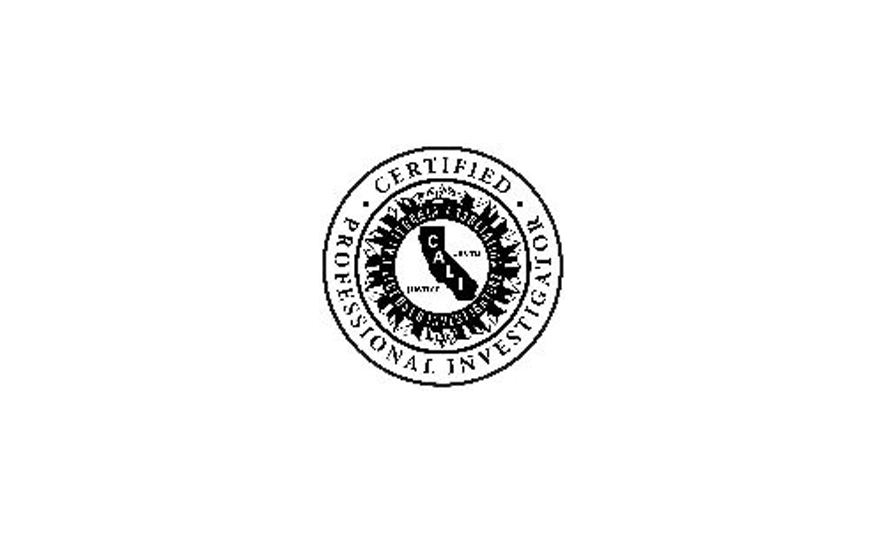प्रमाणन चिह्न उन उत्पादों या सेवाओं की गुणवत्ता या उत्पत्ति को प्रमाणित करता है, जिनका वह उल्लेख करता है। इसमें उत्पत्ति का क्षेत्र या स्थान, निर्माण सामग्री, उत्पादन या आपूर्ति प्रक्रिया या प्रणाली, गुणवत्ता आश्वासन, उत्पादों या सेवाओं का प्रदर्शन या माल या सेवाओं का कोई परिभाषित पहलू शामिल है। यह किसी संघ या अन्य संगठन के सदस्यों द्वारा सेवाओं के निर्माण या वितरण के लिए ऐसी आवश्यकताओं को भी प्रमाणित कर सकता है। प्रमाणन चिह्न का एकमात्र उद्देश्य यह दिखाना है कि कुछ आवश्यकताओं को पूरा किया गया है।
आइए प्रमाणन चिह्न से जुड़े कुछ महत्वपूर्ण पहलुओं पर नजर डालें।
प्रमाणन चिह्न की भूमिका
प्रमाणन चिह्न का पंजीकरण
भारत में प्रमाणन के विभिन्न चिह्न
अनुमोदन के लिए चिह्नों का उल्लंघन
प्रमाणन चिह्न की भूमिका
- जैसा कि नीचे पंजीकृत प्रमाणन चिह्नों के उदाहरणों में देखा जा सकता है, वस्तुएं या सेवाएं किसी विशेष भौगोलिक क्षेत्र से आती हैं।
- जैसा कि नीचे पंजीकृत प्रमाणन चिह्नों के उदाहरणों में दिखाया गया है, सामान या सेवाएं गुणवत्ता, सामग्री या उनके निर्माण के तरीके से संबंधित आवश्यकताओं का पालन करती हैं।
- उत्पादों या सेवाओं पर कार्य या श्रम किसी ट्रेड यूनियन के सदस्य या किसी अन्य एसोसिएशन के सदस्य या ऐसी सेवाओं के आपूर्तिकर्ता द्वारा किया गया था, जैसा कि नीचे पंजीकृत प्रमाणन चिह्नों के उदाहरणों में दिखाया गया है, उन आवश्यकताओं को पूरा करता है।
प्रमाणन चिह्न का पंजीकरण
भारत में ट्रेडमार्क पंजीकरण प्रक्रियाएं प्रमाणन चिह्नों के लिए भी समान रूप से लागू होती हैं, सिवाय इसके कि भारतीय ट्रेडमार्क रजिस्ट्री को रजिस्ट्रार द्वारा प्राधिकृत प्रमाणन चिह्न के उपयोग को विनियमित करने वाले मसौदा विनियमों को जमा करना आवश्यक है।
प्रमाणन चिह्न का पंजीकरण उसके स्वामी को यह विशेष अधिकार प्रदान करता है कि वह दूसरों को अपने उत्पादों पर और उनके बारे में प्रमाणन चिह्न का उपयोग करने की अनुमति दे, बशर्ते कि वे स्वामी द्वारा निर्धारित आवश्यकताओं का अनुपालन करें (धारा 78)। यह ‘पास-ऑफ’ अधिकार प्रदान करता है, जो यह सुनिश्चित करता है कि कोई अन्य व्यक्ति अपने उत्पादों को किसी अन्य व्यक्ति के सामान के रूप में प्रस्तुत करने में असमर्थ है।
उदाहरण के लिए, ‘ए’ अपने उत्पादों को ‘बी’ के रूप में चित्रित करने का हकदार नहीं है, हालांकि ‘बी’ के लिए यह साबित करना महत्वपूर्ण नहीं है कि ‘ए’ ने गुमराह करने के लिए ऐसा किया, यह साबित करना पर्याप्त है कि दोनों उत्पाद भ्रामक थे।
कोई भी व्यक्ति जो अपने उत्पाद को प्रमाणित करना चाहता है, वह अधिनियम द्वारा निर्दिष्ट तरीके से प्रमाणन चिह्न के पंजीकरण के लिए ट्रेडमार्क रजिस्ट्रार के पास आवेदन कर सकता है, साथ ही प्रमाणन चिह्न के उपयोग को विनियमित करने वाले विनियमों के प्रावधान (धारा 71) के साथ। दावेदार संतुष्ट है कि आवेदक प्रस्तावित ट्रेडमार्क के तहत प्रासंगिक उत्पादों को प्रमाणित करने के लिए योग्य है और समाधान के लिए अनुरोध स्वीकार्य है। परिवर्तनों के साथ या बिना, रजिस्ट्रार आवेदन को स्वीकृत कर सकता है या इसे पूरी तरह से अस्वीकार कर सकता है।
यदि परिवर्तन की आवश्यकता है, तो रजिस्ट्रार आवेदक का पक्ष सुने बिना मामले को समाप्त नहीं कर सकता (धारा 72)। योग्यता चिह्न से संबंधित विज्ञापन और विरोध की आवश्यकताएं एक नियमित ट्रेडमार्क से संबंधित आवश्यकताओं के समान ही हैं (धारा 73)।
भारत में प्रमाणन के विभिन्न चिह्न
आईएसआई मार्क: आईएसआई मार्क उपभोक्ता वस्तुओं को संदर्भित करता है। यह कुछ इलेक्ट्रॉनिक उपकरणों के लिए अनिवार्य है, हालांकि यह अन्य निर्मित वस्तुओं के मामले में वैकल्पिक है। यह 1995 से लागू है और इसे भारतीय मानक ब्यूरो द्वारा प्रकाशित किया गया है।
एगमार्क: एगमार्क का उपयोग विपणन एवं निरीक्षण निदेशालय द्वारा देश में कृषि उत्पादों को प्रमाणित करने के लिए किया जाता है, ताकि यह सुनिश्चित किया जा सके कि उपभोक्ता तक शुद्ध खाद्य पदार्थ पहुंचे।
एफपीओ मार्क: प्रसंस्कृत फल उत्पादों के लिए अनिवार्य प्रमाणन चिह्न का उद्देश्य यह सुनिश्चित करना है कि उत्पाद का उत्पादन खाद्य-सुरक्षित और स्वच्छ वातावरण में किया गया है, जिससे यह उपभोग के लिए उपयुक्त हो।
बीआईएस हॉलमार्क: यह कीमती धातुओं की शुद्धता को प्रमाणित करने के लिए एक हॉलमार्किंग योजना है। भारतीय मानक ब्यूरो इन मानकों को निर्धारित करता है।
गैर-प्रदूषणकारी वाहन चिह्न: सभी नए मोटर वाहनों के लिए, यह चिह्न आवश्यक है ताकि यह सुनिश्चित किया जा सके कि उत्सर्जन निर्दिष्ट सीमा से कम है। यह केवल छह महीने के लिए वैध होता है और उस समय की समाप्ति पर, एक नया प्रमाणन चिह्न जारी किया जाता है।
भारतीय जैविक प्रमाणन: इस प्रमाणन लेबल का उद्देश्य जैविक रूप से खेती किए गए खाद्य उत्पादों के लिए जैविक उत्पादों की राष्ट्रीय आवश्यकताओं के अनुपालन को सुनिश्चित करना है। यह खेती में इस्तेमाल किए जाने वाले कच्चे माल में कीटनाशकों, उर्वरकों और कृत्रिम रूप से उत्पन्न हार्मोन की अनुपस्थिति की गारंटी देता है।
अनुमोदन के लिए चिह्नों का उल्लंघन
जहां, व्यापार के दौरान, कोई भी व्यक्ति प्रमाणन चिह्न के स्वामी की अनुमति के बिना, प्रमाणन चिह्न का उपयोग करता है , या किसी ऐसे चिह्न का उपयोग करता है जो प्रमाणन चिह्न के समान भ्रामक है, किसी ऐसे उत्पाद या सेवा के बारे में जिसके लिए यह पंजीकृत है, इस तरह से कि क्रेता को मूल चिह्न के साथ भ्रम हो, प्रमाणन चिह्न का उल्लंघन उल्लंघन माना जाएगा (धारा 75)।
प्रमाणन चिह्न ट्रेडमार्क का एक उपसमूह हैं और ग्राहक के लिए यह महत्वपूर्ण है कि वे जिस उत्पाद को खरीद रहे हैं उसे पहचान सकें ताकि यह सुनिश्चित हो सके कि उत्पादकों द्वारा गुणवत्ता की एक निश्चित डिग्री बनाए रखी जाए। योग्यता चिह्नों का पंजीकरण स्वामी को अतिरिक्त सुरक्षा प्रदान करता है लेकिन यह अनिवार्य नहीं है। प्रमाणन चिह्न का उपयोग अनन्य नहीं है, क्योंकि चिह्न का स्वामी किसी भी व्यक्ति को इसकी उपयोगिता से वंचित नहीं कर सकता है जो प्रमाणन के लिए चिह्न द्वारा गारंटीकृत विशेषताओं को बरकरार रखता है।
